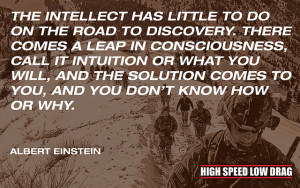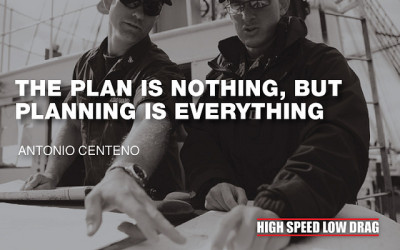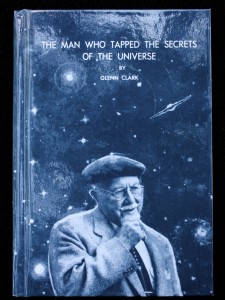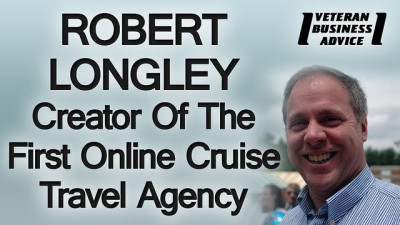High Speed Nation, John Lee Dumas here, and I am fired up to bring you our feature guest today, Robert Longley. Robert, are you prepared to ignite?
Robert: I’m always prepared to ignite.
John: Yes! Robert spent eight year as an Air Force intelligent officer. He has since gone out to start the first online cruise travel agency and other entrepreneurial initiatives.
He has spent most of his career in IT project management and specializes in case management systems for social services. Robert, I’ve given our listeners just a little overview. So tell us about you personally because we want to get to know you and then we’ll dive in.
Robert: Sure. I grew up on a farm, went to college, did the ROTC thing and thought I knew exactly what I was going to do going into the military. I had plans to be a base architect and as often the case the military had other plans. And I actually was — I thought I was going to be stationed up by where you grew up at Pease Air Force Base and got my orders and it’s like, “How are you going to like Texas?”
I’m like, “What? What am I going to do in Texas?” And they said, “You’re going to be an intelligence officer.” And it’s like, “Okay, this is interesting.” And it’s one of those things that you don’t find out until you’re actually there because they need to do a clearance on you and everything.
And so that was the start of an interesting and rapidly changing career because once I got my training I showed up at my first base and thought I knew what I was going to be doing there and they said, “No, they’re going to be doing intelligence collection management.”
And my boss says, “I don’t know what you do. The guy that replaced you left six months ago. I don’t know what he did. There’s your desk. Good luck.”
And that’s kind of been the theme for my career ever since. And it was kind of most — a lot of people specially enlisted in the military are you basically are given your orders and you follow orders and I really walked into a position where there was a lot of freedom partially because there were some classified issues and I had some unique clearances and my boss honestly didn’t know what I did half the time.
We could share some stuff, but not others. And being that I had replaced somebody who’d been gone for six months I kind of had to learn it on my own. And I got to surprise some people because I learned some things and did some things that nobody had done in quite a while. So it was a great way to start a career.
John: Well, it does sound like a fascinating and interesting career and I’m excited to dive into it, Robert, for a plethora of reasons. But before we do, we always start with a success quote. So take it away.
Robert: One of my favorite quotes is something called Meno’s Paradox which is if you’re looking for something, but you don’t know what it is how then once you found it will you know that that’s what you were looking for.
John: Love that quote. It kind of brings back a little memory of Alice in Wonderland when she asked the cat, “How do I get there?” and the cat’s like, “Well, where are you going?” And she’s like, “I don’t know. He’s like, “Anyway, we’ll take you there.” Good stuff.
So Robert, like thinking of that quote and like kind of really internalizing it. Like how does that kind of fit into your mantra, your lifestyle?
 Robert: Really just having a direction and even though if you look back or if I had looked forward for my 20 year old self to get where I am now it wouldn’t have made a lot of sense, but just knowing the steps that I took have at each step where I ran into a wall a window basically opened and took me in a different direction.
Robert: Really just having a direction and even though if you look back or if I had looked forward for my 20 year old self to get where I am now it wouldn’t have made a lot of sense, but just knowing the steps that I took have at each step where I ran into a wall a window basically opened and took me in a different direction.
So you have to have at least an idea of where you’re going. You don’t necessarily need to know that’s where you’re going to end up, but looking back it all makes sense. So without a plan none of that would have happened.
John: I love that. Every wall that you ran smack into turned into a window. So think about that, High Speed Nation, when you know you’re coming up against an obstacle or a challenge and you’re not really seeing the way out. Well, believe me, believe Robert there’s a window somewhere. You just have to keep your eyes open for it.
And Robert, I love to now really do a dive into your military journey specifically and really focus down into one moment because we love stories here and we really resonate with stories. We connect with stories and we learn from stories. So share with us your most pivotal moment. Take us there, Robert, and share with us that lesson.
Robert: I had to think about this because of most of my years is still classified and it’s just eight hours of your day that you can’t talk to anybody about. But basically I would say the most pivotal moment in my career and for most people in my generation was probably the month prior to the start of the Gulf War. And it just things stopped being bureaucratic and just a real sense of team work came about.
And one particular incident was I worked on a lot of systems when I was in the military and one particular system that was in design at that time we were expected to get our version of this particular system in probably 1993 or 1994 which was a couple of years late after the Gulf War. And I got a call one day from somebody in Washington basically saying, “We’re bringing down your terminal on Wednesday.” And I’m like, “What are you talking about? It’s like it hasn’t even been tested yet.”
So it’s like, “Okay, it’s coming.” Well, that was just one of many things that were happening about the same time and they literally faxed us the instructions for how they thought this was supposed to work because it hadn’t even been tested with our equipment. And met with the IT guys and they were getting other request like this around the same time. So now I had already gone into Kuwait.
And you know so I come in the next morning and there’s guys running around in the ceilings and all the tiles are popped. It’s just complete chaos and the guys showed up on Wednesday and basically brought this specialized computer. This is back in the day when pretty much before Windows.
So you had when you had an application it was a computer. So if you had five applications on your desk you also had five computers on your desk. And so we got this thing up and ran a bunch of cable and basically tied it into the base’s message processing system and we screwed around with it for several hours and absolutely nothing happened.
And we just kept playing with it and it’s like everything seems to be working, but there’s nothing coming in. And so I finally had the guys — we slowly turned off all the security settings and the base’s communication system just because we couldn’t figure out anything else to do.
And about 7:00 at night it’s like, “Well, everything else is off.” And these guys wanted to get back to Washington. All of a sudden there’s a blip on my screen and I was like, “Okay, message actually came through.” It was a message from one of the ships basically announcing that they had just launched on Iraq and that was a crazy moment. It’s like because I was the first person to see that in our unit and pretty much everybody that was there at that time stayed for another 19 hours.
But it was kind of comical because the message that followed it was from a higher power in Washington basically saying, “We know what you’re doing. Get back to work.” And that’s we were doing bomb damage assessment a few hours later.
John: Wow. I mean there’s a lot that I’m taking out of this and you know one thing that I really love you said right at the beginning that kind of just kind of sparked that patriotisms in me and that is that when things are happening in the Gulf War the bureaucracy just drops away and teamwork develops and you guys are now working together as a team against a common enemy, a common foe for a common cause to protect the United States Military men and women that we’re going to assume be in harm’s way.
And you know for the listeners, for High Speed Nation, Robert, these are current military members. There are people that are transitioning, who have recently transitioned out and are now in the civilian world. This is the kind of thing that entrepreneurs dream of. This is the kind of team like just camaraderie that entrepreneurial leaders and CEOs and just the head honchos. This is what you wish for.
If you can just get a team all on board for this one specific cause and of course nothing will do that like a war, but I mean if you can kind of try to bottle that up and really just imbue that upon your team, your leaders like anybody involved like great things can happen. And Robert is a great shining example of that.
So Robert, I kind of want to move forward now because you spent a lot of time in the military and a lot of it you can’t talk about that, but you did give that great pivotal moment that you had.
Share with High Speed Nation with your transition out. What was that like? What challenges did you face and what lessons did you learn?
 Robert: A lot of stuff was happening at once. After the Gulf War, I was finished with that particular assignment and I actually moved up to Washington to oversee intelligence systems integration. And I got put on a bunch of special projects while I was there and one of them we got — one day we got an email from the Undersecretary of the CIA basically saying, “We’re going to start transitioning all information into this new format called HTML.”
Robert: A lot of stuff was happening at once. After the Gulf War, I was finished with that particular assignment and I actually moved up to Washington to oversee intelligence systems integration. And I got put on a bunch of special projects while I was there and one of them we got — one day we got an email from the Undersecretary of the CIA basically saying, “We’re going to start transitioning all information into this new format called HTML.”
And so like, “What the heck is this?” They sent us some bootlegged disk that I found that had basically been stolen from the University of Illinois and because I was home for Christmas about six month later and my brother-in-law was actually the Dean of the College of University of Illinois at the time. And he says, “Rob, you got to get this software package that one of my guys built,” and that was Marc Andreessen who was the founder of Netscape and I’m like, “Somebody gave that to me six months ago, Pete.”
So but anyways, I ended up building one of the first 25 or so websites that ever existed. It was never a public site, but it was definitely one of the early ones. And again, there were no instructions. They just gave us the disk and we just did things until the system crashed. And you know after the Gulf War and after Vietnam and other times too they typically do rifts.
So the first one came around my six year mark and I was in Korea at the time and there were seven of 11 of us that got a notice that you’re done in the military. So I survived that first round and then second round came about a year later. I survived that. And the third time came around. They were given some golden handshakes and I said, “Okay, this is — I’ve had enough of this.”
There were 32 people from my one unit that walked out the day that I left. So I took my newly found internet skills and started building internet sites once I moved back to Connecticut.
John: I mean what a head start that that gave you and just understanding what the internet had in store for the rest of the world and what the power it was that lay behind it. I mean building one of the first 25 websites I mean that’s something that is just unheard of and epic. So definitely congratulations on that.
What would you say, Robert, was like the one thing you did when you transitioned out that really got you going in the civilian world?
Robert: Being an officer in the Air Force is probably different than what you experienced. It’s much more corporate and not that different than the corporate world at least been my experience. So I didn’t view the transition that different, but I did go the entrepreneurial route. So there were family issues. You know I had a new baby at the time and I basically built a business for my wife and started doing stuff on my own.
So I didn’t make a jump to a corporation. I started working for myself and it was some lean times for the first 12 months or so, but it definitely started to take off and I tend to do more than one thing than I should. I know you like the acronym for focus. It’s a great belief, but I tend to be less than great at following it unfortunately.
So I tend to do three or four things at once. So I basically was building the travel agency for my wife, doing websites for — I did most of the radio stations in the New England area resorts and Aruba and just a whole bunch of other stuff. I did about 100 different websites over the years and just eventually grew out of that and did other things, but I just kept moving forward.
John: I mean, Robert, you like so many of our listeners and like myself in the past have fallen victim to those weapons of mass distraction. I mean they are everywhere. They’re just like little mine holes that are just looking for you to stumble upon them because you’re not staying on that one focused path. And you know what that’s okay. It happens. It’s a learning experience.
But High Speed Nation, the more that you can avoid those bright shiny objects and really just know the course that you’re going to take and block out like those horses just have those blinders so they don’t get distracted by the crowd and by the flashing bulbs. Put those blinders on and just drive forward. And Robert, what I really want to do now is talk about an aha moment you’ve had.
I mean you’ve had hundreds if not thousands of pretty major aha moments, but I want you to tell us a story of one that just jumps out in your mind. Like take us there that moment you had that idea, Robert, that was just a light bulb in it of itself and then take us through the step you took to turn that moment into success.
Robert: Sure. I had to think about this and I was debating whether I was going to tell this and I figure you know maybe it’ll help some folks.
About 12 years ago, we found out that one of my kids was being molested. So and you know went through the whole process, spent years in court, et cetera et cetera. But when you go through this and this happens to a lot more people than you would think, one in three girls and one in five boys by the time they’re 18 will have some form of sexual abuse.
In going through the intake process with the organizations that help families we’re sitting with this woman and she takes out a three by five note card and starts writing down our information and I’m like, “You’ve got to be kidding.” This is 2000 something and I’m like, “You don’t have a computer for this?” And she’s like, “No, we don’t.”
And when the going gets tough the tough builds software. So I actually built them — I took the reservation system that I had originally designed for my wife’s travel agency and turned it into a case management system for child sexual assault. And it was used for several years by all of the child agencies in Connecticut until it was replaced by a national system.
But that model I basically turned that into a variety of different versions that have been used for missing persons in the state of New York, victim services in Arizona, built a vocational services for American School for the Deaf and I’m really getting to the point where I’m standardizing and hopefully going to be offering some SASS applications in the victim community that all started with that.
As difficult as stuff like this is it gives you an appreciation. I try to build a veteran’s system because it’s just another form of PTSD that so many veterans are dealing with. The VA is very difficult to work with unfortunately. If anybody’s listening that’s got some connections and wants to give another go at it I’ve got most of the system designed and would love to make it happen.
John: And if anybody’s listening give Robert Longley a call because your system needs to wake up from 1984, believe me. And just to clarify for High Speed Nation, SASS is software as a service. So definitely check that out if you Google it. you can get some great details on it, but one thing that you brought up, Robert, that I really love is that you saw a problem that was happening in this world.
You saw and itch that needed to be scratched and it was in a pretty serious area and you definitely changed a lot of lives by doing what you did. And that’s really an important lesson for our listeners because they can apply that to any niche. I mean literally, High Speed Nation, keep your eyes open as you go through life. What are people complaining about? Like where are things lacking?
Like where’s that void? You know for me, my eyes were open and I saw that void as a seven day a week podcast that interviews entrepreneurs that were successful and aspiring. It didn’t exist. I wanted it. I knew other people must. I created it.
Robert Longley saw somebody writing on a three by five card and was like, “This is archaic. This is what the Egyptians were doing 3,000 years ago like let’s bring things to modern times.” So keep your eyes open. Find out where that scratch is that you can itch and then start taking action if it resonates with you because this is a marathon not a sprint.
And Robert, I want to bring things to present times because you have a lot of cool things going on. Share with our listeners what’s the one thing that you’re most fired up today?
Robert: Like I said, I tend to work on a lot of things at once which drives my wife nuts because I never seem to accomplish stuff. But I’ve really gotten to a point with a lot of what I’m doing that I’m getting more focused with what I’m doing and starting to systematize my stuff more and doing less one off and more repeatable business off of what I’ve already done more package consulting and stuff like that. So it’s been a long road, but it’s I think there’s a whole new phase ahead of me.
John: Welcome to the land of focus, Robert. We are honored to have you upon our shores. And Robert, we’re going to enter the lightning round now. You’re going to get to share some incredible resources and of course mind blowing answers. Sound like a plan?
Robert: Absolutely.
John: What was the most difficult adjustment that you had to make to the civilian world?
Robert: Believe it or not I don’t think it was really for me. It was more my wife. We had a new baby and she was new to the military and was looking at it as — so many people — her uncle was a lifer in the Marines. So that was her reference point and for me to get out after eight years kind of pulled the rug out from under her. And I basically set her up with a business that I don’t know that it was ever really her dream to run a business.
So there are always family considerations that you have to make when you leave the military. If I’d stayed in, my next assignment was going to be remote. So that would have been a rude awakening as well. But yeah, I think that was really the biggest adjustment for her.
John: What business advice would you pass along to those making the transition right now?
 Robert: Try to plan in advance. If you know when you’re going to get out start doing things in advance that you can start to think about transitioning to the civilian world. Look into what the jobs are that out there if your specialty allows it some jobs transition almost immediately. I took a completely different path and there were a couple of us that were — I actually got my real estate license the day that the Gulf War started and I never used it. But that was part of the process that I’m starting about life after the military. So…
Robert: Try to plan in advance. If you know when you’re going to get out start doing things in advance that you can start to think about transitioning to the civilian world. Look into what the jobs are that out there if your specialty allows it some jobs transition almost immediately. I took a completely different path and there were a couple of us that were — I actually got my real estate license the day that the Gulf War started and I never used it. But that was part of the process that I’m starting about life after the military. So…
John: LAM, life after military. What is one of your habits, Robert, that contributes to your success?
Robert: I would say my ability to adapt to change. Nothing has been a linear path for me since day one and nobody’s been telling me do this or do that. It’s really been me figuring things out along the way. And that’s true both in the military and in the civilian world. If you’re not figuring it out for yourself somebody is figuring it out for you.
And you really have to be able to adapt to the changes that present yourself because even since I’ve been out so many things have changed in my business over the years and you just have to be able to view the situation and see if you’re headed in the right direction still and just adapt to change.
John: If you can recommend one book, Robert, what would it be?
 Robert: It’s called — I don’t know if you’re familiar this, The Man Who Tapped the Secrets of the Universe. It’s a biography of a guy named Walter Russell. And I believe the book was written by a man named Glenn Clark. And Walter Russell was — most people don’t know him, but they’d probably seen his work. He was best known as the sculptor who did most of the presidents in the part of the 20th century.
Robert: It’s called — I don’t know if you’re familiar this, The Man Who Tapped the Secrets of the Universe. It’s a biography of a guy named Walter Russell. And I believe the book was written by a man named Glenn Clark. And Walter Russell was — most people don’t know him, but they’d probably seen his work. He was best known as the sculptor who did most of the presidents in the part of the 20th century.
And while he was doing that he was also hanging out with people like Einstein and Tesla and he wrote about philosophy. He painted. Just kind of what you would think of as a modern renaissance man. But the book is kind of a short biography. It’s only like 60 pages, but it just shows how he looked at life situations and found ways to turn them to his advantage and that’s basically what the book’s about. So I recommend that to everybody.
John: Well, Robert, I want to thank you on behalf of High Speed Nation for taking time to chat with veterans, with future veterans, with just our listeners in general. So let’s end with you giving us one parting piece of guidance, sharing the best way that we can connect with you and then we’ll say goodbye.
Robert: If you’re looking for that, start planning now, start looking at resources like this on the internet, iTunes is an amazing resource. Some days I will listen to ten to 12 hours of different podcasts. I told John that it’s unusual talking like this because I’m used to listening to him on 2x speed.
John: Why is John talking like he’s drunk right now?
Robert: No, you don’t sound like you’re drunk. There are a lot of resources out there and take advantage of them. It’ll help you figure out what it is you’re going to do next.
John: Totally love it. And Robert, if there’s a way for people to connect with you is there a possibility?
Robert: Robertblongley@gmail.com is the easiest way to get me. Intoaction.com is another easy way to find me. That links to a bunch of my sites.
John: Cool. Well, listen. High Speed Nation knows that they are the average of the five people that they spend the most time and, High Speed Nation, you’ve been hanging out with Robert and myself today. So keep up the heat. And Robert, thank you for being so incredibly generous with your time, your expertise and experience. High Speed Nation salutes you and will catch you on the flipside.
Robert: My pleasure.
Veterans, your education doesn’t stop here. Go to highspeedelite.com to join the exclusive veterans mastermind that will give you the unfair advantage to succeed in both business and life. We have dozens of training courses, HD videos, a private Facebook group, and the chance to interact daily with John and other successful veteran entrepreneurs every month on live hangouts and webinars.
High Speed Elite is more than a mastermind. It’s your ticket to the land of success.
Are you prepared to ignite? Go to highspeedelite.com today to find out more.

